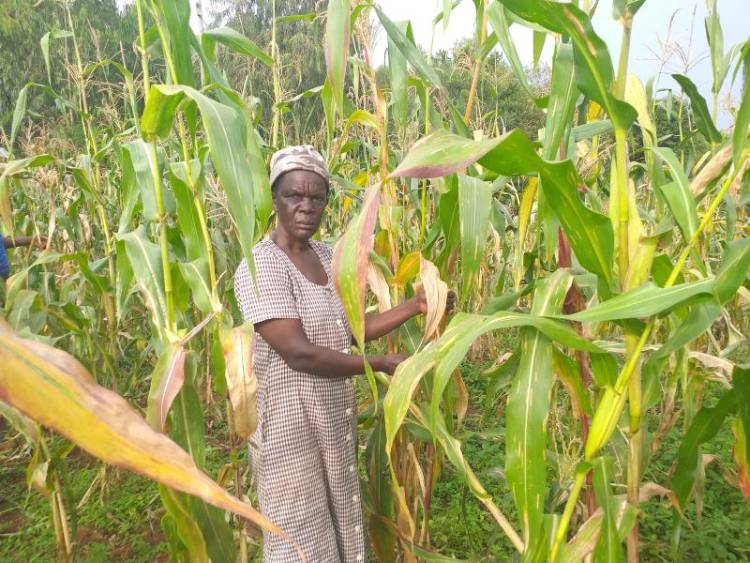×
The Standard e-Paper
Kenya’s Boldest Voice

Susan Ayieko, a resident of Akingli village in Kisumu West Sub-county, at her farm. She says the crops have been completely destroyed by baboons. [Denish Ochieng, Standard]
It is 9am on a Monday morning, and Jeckonia Njaga emerges from shrubs neighbouring his home in Akingli village, Kisumu West Sub-county.